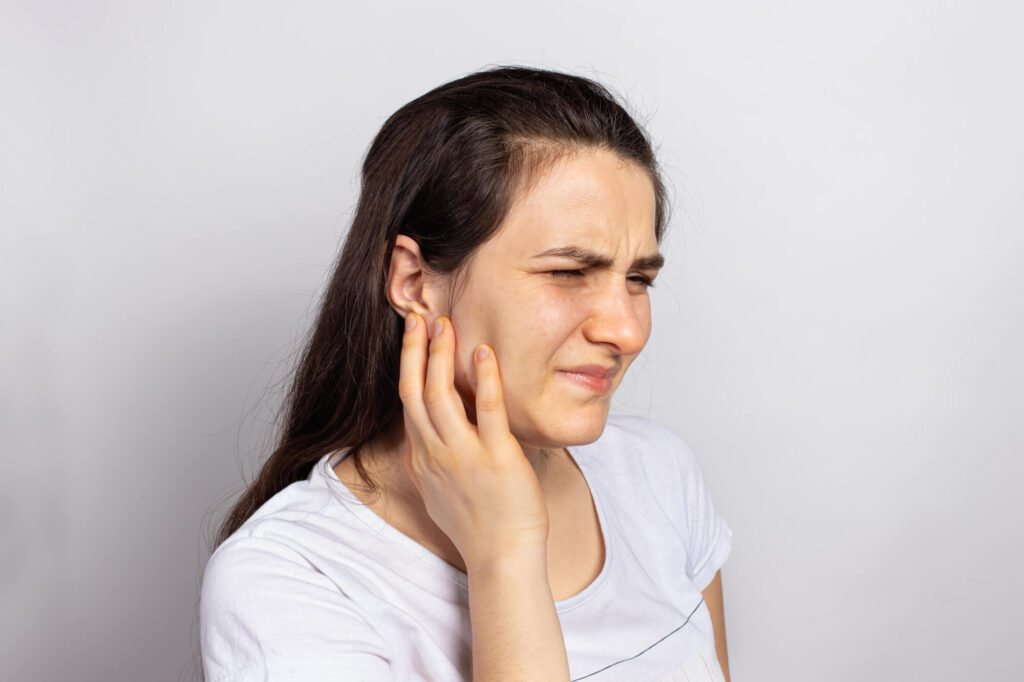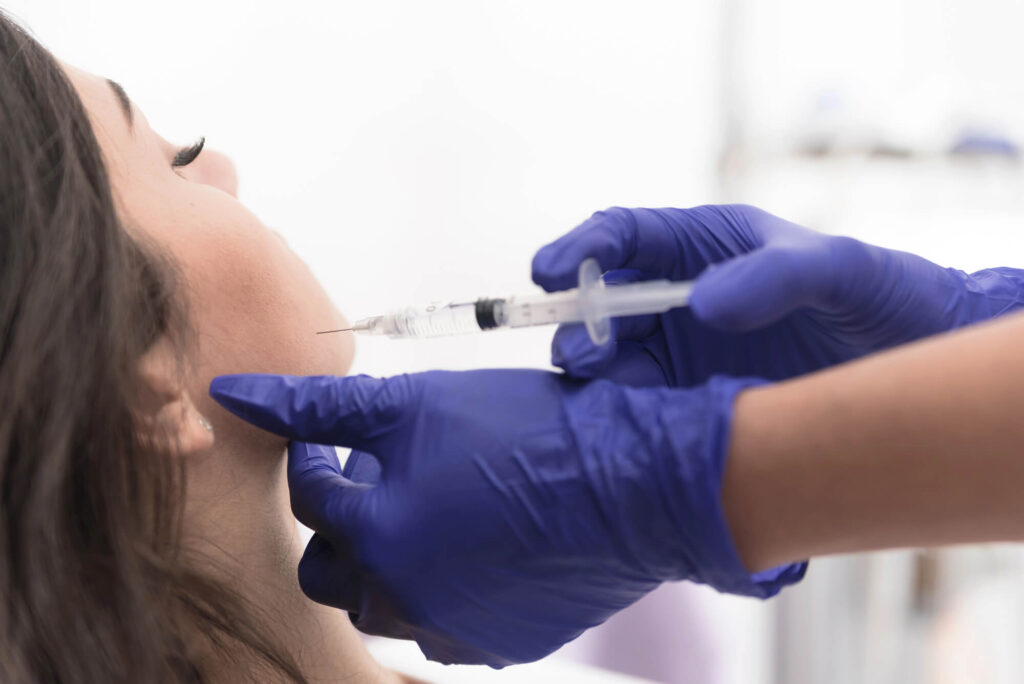Stress, tension, and negative sleeping habits can seriously affect oral health, resulting in teeth grinding, dental erosion, and TMJ dysfunction or TMD. This condition can cause pain and tenderness in your jaw joints and surrounding muscles, requiring Botox® for TMJ to restore your comfort and prevent further wear and tear.
There are various treatments for TMD, from medication to custom mouthguards and jaw surgery. However, Botox® can be a simple but effective method for relaxing your jaw with quick and noticeable effects. Let’s go over why.

What Is TMJ Disorder?
The temporal bones of your skull, which are located in front of each ear, are connected to your jaw by a hinge called the temporomandibular joint (TMJ). It allows you to yawn, chew, and talk by moving your jaw side to side and up and down. However, being fundamental to these various functions, the TMJ is a hinge used frequently.
Therefore, problems with the jaw and facial muscles are common, known as temporomandibular disorders (TMDs). They’re most frequently found among people between 20 and 40. Various factors can lead to issues with the muscles of your jaw or with the parts of the joint itself.
- Injuries to your jaw, joint, or head and neck muscles, such as whiplash or a severe blow.
- Teeth clenching or grinding.
- The disc or soft cushion moves between the joint’s ball and socket.
- Arthritis in the joint.
- Stress, which can lead to clenching of the teeth or tightening of the jaw and face muscles.
What Are the Symptoms of TMJ Disorder?
TMD is a tricky condition because it often causes severe pain and discomfort. It can make eating, chewing, and speaking difficult, severely affecting your quality of life. Moreover, the symptoms can be temporary or last many years.
Some common symptoms include:
- Discomfort around your ears, neck, shoulders, jaw joint, and face.
- Problems trying to open your mouth wide.
- Jaws that “lock” or become “stuck” in the open or closed position
- Jaw clicking, popping, or grating noises that may or may not hurt when you chew or open and close your mouth.
- Swelling on your face’s side.
- Tinnitus, or ringing in the ears, along with hearing issues.
- Migraines or headaches.
Treatments for TMJ Disorders
TMJ disorders are often caused by stress and tension in the mouth area, which is why working on relaxation techniques can often help reduce the symptoms. Relaxation techniques like meditation and yoga can help reduce your overall tension. Additionally, your dentist may suggest some exercises to loosen up your jaw.
Other practices to incorporate are avoiding using teeth as tools, not resting your chin on your hand, practicing good posture to reduce neck and facial pain, and keeping your teeth slightly apart.
However, when TMD cannot be controlled with these practices, more extreme treatments may be suggested, such as:
Medications
If you clench or grind your teeth, your dentist may recommend a muscle relaxant to ease your jaw or an anti-anxiety drug to reduce stress, which can trigger TMDs. Additionally, they can prescribe NSAIDs to help lessen the pain and swelling brought on by TMD.
A Nightguard
Mouthguards are plastic mouthpieces covering your upper and lower teeth to keep them from touching and as a cushion. Realigning your teeth improves your bite and mitigates the effects of clenching or grinding.
Botox® for TMD
Unknown to most, Botox® can help relieve the symptoms of temporomandibular joint (TMJ) dysfunction.
Botox® for TMJ dysfunction may relax the jaw, reduce pain, and enable the person to open their mouth fully. Botox® can paralyze some of the muscles in the temporomandibular joint, reducing pain and other symptoms associated with TMD.

Understand the Benefits of Botox® for TMJ
TMJ disorders can cause jaw pain, headaches, and other symptoms. While there are several treatment options available, it can be challenging to choose the best one for you, and the symptoms will remain incapacitating and painful in the interim.
Here at CJ Dental, we want to look for options that will offer you real relief. For that reason, we offer Botox® for patients with TMJ disorders, a proven method that can reduce tension and relieve these painful symptoms immediately. If you’re interested in learning more, reach out!




